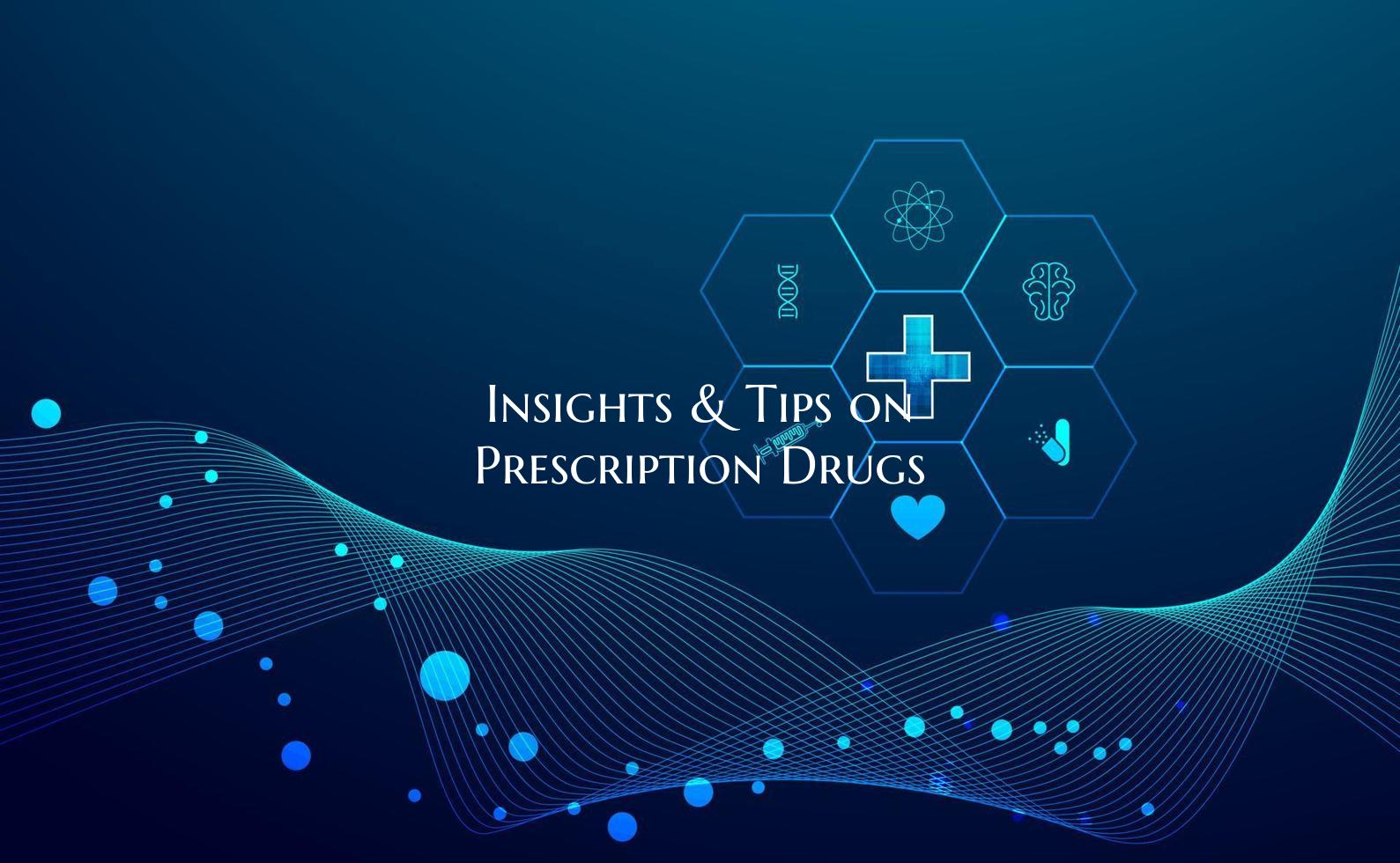
Insights & Tips on Prescription Drugs
Prescription drugs play a pivotal role in managing various health conditions and improving overall well-being. Understanding how to navigate the world of prescription medication can be beneficial for individuals seeking effective treatment. Here are some valuable insights and tips to consider:
1. Consult a Healthcare Professional: Always consult a qualified healthcare provider – such as a doctor or pharmacist – before starting or changing any prescription medication. They can provide guidance on the appropriate dosage, potential side effects, and interactions with other medications.
2. Follow Prescribed Instructions: It's crucial to follow the prescribed instructions for taking your medication. This includes the dosage, timing, and duration of the treatment. Deviating from the instructions can affect the medication's effectiveness and potentially harm your health.
3. Educate Yourself: Take the time to educate yourself about the prescription drugs you are taking. Understand the purpose of the medication, how it works, and what to expect in terms of results and side effects. This knowledge empowers you to make informed decisions about your healthcare.
4. Keep a Medication Record: Maintain a record of all the prescription drugs you are taking, including the name of the medication, dosage, and frequency. This information is essential for healthcare providers to ensure safe and effective treatment, especially in case of emergencies or consultations with multiple doctors.
5. Be Aware of Side Effects: Be vigilant about potential side effects associated with your prescription medication. Common side effects can include dizziness, drowsiness, nausea, or allergic reactions. If you experience any unusual symptoms, inform your healthcare provider immediately.
6. Avoid Alcohol and Drug Interactions: Some prescription drugs can interact negatively with alcohol or other substances, affecting their efficacy or causing harmful side effects. Always check with your healthcare provider on whether it is safe to consume alcohol or other medications while on prescription drugs.
7. Store Medications Properly: Store your prescription drugs in a cool, dry place away from direct sunlight and out of reach of children and pets. Avoid keeping them in the bathroom, as moisture and heat can affect the medication's potency.
8. Request Generic Alternatives: If cost is a concern, inquire about generic alternatives for prescription drugs. Generic medications contain the same active ingredients as brand-name drugs but are typically more affordable. Your healthcare provider can recommend suitable options.
9. Adhere to Refill Schedules: Ensure that you refill your prescription medications before running out to avoid any interruption in your treatment plan. Set reminders or use automatic refill services to stay on track with your medication schedule.
By incorporating these insights and tips into your approach to prescription drugs, you can optimize the benefits of your treatment while minimizing risks and complications. Remember, proactive communication with your healthcare provider is key to ensuring safe and effective use of prescription medications.